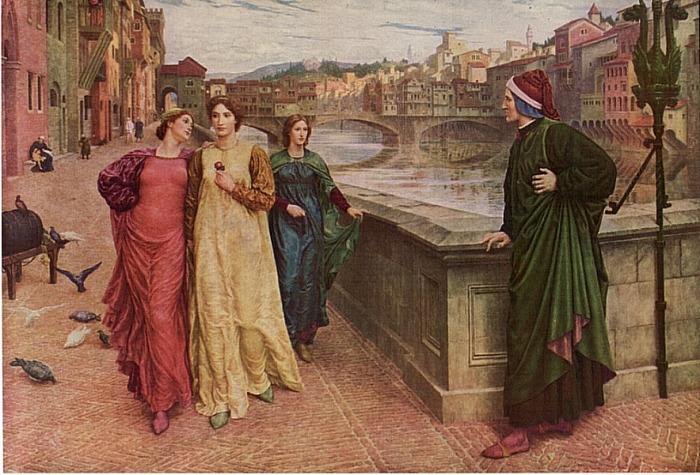






- Total
- General
- Arts
- Book
- Culture
- Economy
- Essay
- Fun/Joke
- History
- Hobbies
- Info
- Life
- Medical
- Movie
- Music
- Nature
- News
- Notice
- Opinion
- Philosophy
- Photo
- Poem
- Politics
- Science
- Sports
- Travel
Music [오페라 아리아] '오 나의 사랑하는 아버지'
2010.09.10 08:28
|
Comment 16
-
운영자
2010.09.10 10:36
-
김명순*70음대
2010.09.10 12:04
이 오페라는 짧은 단막극으로 로레타의 아리아 하나를 빼고 나면
복잡한 내용과 어두운 무대장치, 자니 스키키의 독백극 같은
지루함 등..때문에 실제 보는 재미가 조금 별로에요.
제가 입학하던 해에 음대에서 시공관 무대에 이 오페라를 올렸는데
그때 자니 스키키 역으로 조영남씨가 열연했던 기억이 새롭습니다.
(운영자님, 테이블을 멋지게 꾸며주셔서 고맙습니다 ^^*) -
이건일*68
2010.09.10 13:40
명순님이 올리신 좋은 노래를 재미있는 이야기와 함께 WM 가 꾸미신 web page로 읽고 있으니
시절이 좋긴 한가 봅니다.
전문 음악인이 가끔 음악 이야기 좀 올려 주십시오.
조 영남 씨는 제가 의대 1학년이었던 1964년 의대 강당 에서 있었던
의예과 생 본과 진입식 때 노래 부르는 걸 본 것이 처음 이었고,
1980 몇년엔가 이곳 Cincinnati 에 노래 하러왔을때 한번 맞나 이야기 나눈것이 전부입니다.
제 기억엔 노래 잘 하는 세속적 인물로 생각 되는데 아직도 인기가 있는 걸 보니
재주가 많긴 한가 봅니다. -
운영자
2010.09.10 16:17

Maria Callas (Greek: Μαρία Κάλλας) (December 2, 1923 – September 16, 1977) was an American-born Greek soprano and one of the most renowned opera singers of the 20th century. She combined an impressive bel canto technique, a wide-ranging voice, and great dramatic gifts. An extremely versatile singer, her repertoire ranged from classical opera seria to the bel canto operas of Donizetti, Bellini and Rossini; further, to the works of Verdi and Puccini; and, in her early career, to the music dramas of Wagner. Her remarkable musical and dramatic talents led to her being hailed as La Divina.
Born in New York City and raised by an overbearing mother, she received her musical education in Greece and established her career in Italy. Forced to deal with the exigencies of wartime poverty and with myopia that left her nearly blind on stage, she endured struggles and scandal over the course of her career. She turned herself from a heavy woman into a svelte and glamorous one after a mid-career weight loss, which might have contributed to her vocal decline and the premature end of her career. The press exulted in publicizing Callas's allegedly temperamental behavior, her supposed rivalry with Renata Tebaldi, and her love affair with Aristotle Onassis. Her dramatic life and personal tragedy have often overshadowed Callas the artist in the popular press. However, her artistic achievements were such that Leonard Bernstein called her "The Bible of opera", and her influence so enduring that, in 2006, Opera News wrote of her: "Nearly thirty years after her death, she's still the definition of the diva as artist—and still one of classical music's best-selling vocalists."
Data from the Internet, Text from Wikipedia -
운영자
2010.09.10 16:40
운영자 註: I thought I could understand this term at least a bit by studying a few articles. But I realize that it isn't something that is touchable by me. However, from the internet, I leave the following writing that seems to explain it better than the others.
Anyone brave enough to be interested in this subject, please read on... while listening to the beautiful voice of Maria - supposedly in Bel Canto technique. You may pick up something or you may get more confused.The Bel Canto technique
Bel canto means, most literally, "beautiful singing." It is a term used to describe all Italian singing, but in particular the light, bright quality that Italian opera singers use to charm audiences. Despite bel canto's popularity, it is shrouded in obscurity. The history of this art is a complicated and mysterious one.
Bel canto emerged in the sixteenth and seventeenth centuries, but its roots lie all the way through the Middle Ages. It began in the singing instruction that Italian masters provided their students. Because singing must be mastered internally, teaching singing is tricky. Italian masters relied on a system of teaching and listening to their pupils. When the pupil created a tone or sound that was of admirable quality, the master would urge that pupil to repeat the sound until it was ingrained in their memory. This practice became so inherent to Italian singers that Italian singing became shrouded in mystery. Many thought that Italy was protecting its singing mastery from foreign countries, when in reality it was simply espousing a valuable teaching style.
Bel canto was initially used by men, and, at its earliest, by male religious singers. The Italian castrati were famous for their use of this singing style. During the time of the Renaissance, the period when opera was created in Italy, bel canto became the singing style used for this new art form. Later, it became famous through use by other operatic singers, notably sopranos. Today, it is sopranos like Joan Sutherland and Kathleen Battle that keep this tradition alive.The secret to bel canto, some claim, lays in continuity of tone. Many singers are judged on their ability to pass from one musical phrase to the next with little to no interruption. The art of sustaining passages to create a beautiful line can be seen in the performances of the most famous bel canto singers.
Italian singing itself is very dependent upon the Italian language. Italian words often contain consonants strung together with vowel sounds. Because of this, their language is very fluid and, when spoken correctly, it resonates in the facial structure. Italian singers make full use of these vowels, because they allow long, continuous lines in singing. Italian singing contains little distinction between the start of tone and the intake of breath. This, too, contributes to a continuous line. Finally, Italians consider singing to be a natural act instead of an unnatural one. Therefore, true Italian singing, and true bel canto singing, is an extension of normal speaking and voice expression.
Rossini, Donizetti, Bellini, Marcello and Pacini are some of the most famous bel canto composers. In their operas, one finds the light, soaring soprano and tenor arias that have made Italian opera famous. While many consider bel canto to be an art that has "died," bel canto is, by its very nature, Italian singing. Therefore, it will exist as long as Italian singing does. From the popularity of Andrea Bocelli and other Italian singing stars, one can see that bel canto will be around for quite a long time.
-
이건일*68
2010.09.11 01:16
WM, Thank you for the informations.
Castrato 에 대하여;A castrato (Italian, plural: castrati) is a man with a singing voice equivalent to that of a soprano, mezzo-soprano, or contralto voice produced either by castration of the singer before puberty or one who, because of an endocrinological condition, never reaches sexual maturity.
Castration before puberty (or in its early stages) prevents a boy's larynx from being transformed by the normal physiological events of puberty. As a result, the vocal range of prepubescence (shared by both sexes) is largely retained, and the voice develops into adulthood in a unique way. Prepubescent castration for this purpose diminished greatly in the late 18th century and was made illegal in Italy in 1870.
As the castrato's body grew, his lack of testosterone meant that his epiphyses (bone-joints) did not harden in the normal manner. Thus the limbs of the castrati often grew unusually long, as did the bones of their ribs. This, combined with intensive training, gave them unrivalled lung-power and breath capacity. Operating through small, child-sized vocal cords, their voices were also extraordinarily flexible, and quite different from the equivalent adult female voice, as well as higher vocal ranges of the uncastrated adult male (see soprano, mezzo-soprano, alto, sopranist, countertenor and contralto). Listening to the only surviving recordings of a castrato (see below), one can hear that the lower part of the voice sounds like a "super-high" tenor, with a more falsetto-like upper register above that.
Castrati were rarely referred to as such: in the 18th century, the euphemism musico (pl musici) was much more generally used, although it usually carried derogatory implications; another synonym was evirato (literally meaning "emasculated"). Eunuch is a more general term, since historically many eunuchs were created after puberty, castration thus having no effect on their voices.
(from Wikipedia)添言; 그러나 한편 아무나 Wagnerian singer 가 될수 없다고 합니다.
bel canto 창법으로는 Wagner 를 노래 할수 없는 모양 입니다.
한편 Callas 가 일생 동안 Carmen 을 실제 오페라 무대에서 공연 해보고 싶어 하였지만
결국 못 해보고 죽었다는 군요.
하여간 Callas Forever!
그 전도 그 후도 LA DIVINA 는 Callas 뿐이지요. -
김명순*70음대
2010.09.11 02:01
벨칸토와 카스트라토에 대한 말씀들, 매우 흥미롭습니다.
두 창법은 이탤리식 오페라에서 보여진 큰 특징이라 하겠습니다.
모차르트의 후기 오페라(피가로, 마적)나 바그너의 오페라는
독일식이라고 불리우며 벨칸토 창법과는 많이 다르지요.
중세 교회 음악에서 부터 바로크 시대 오페라에 이르기 까지
활약했던 카스트라토는 나폴레옹의 이탤리 점령 이후 사라졌고
요즘은 거세 대신에 훈련을 통해 소프라노 고음을 노래하는
테너들이 있는데, 그들을 '카운터테너' 라고 부릅니다.
아래는, 전설적 카스트라토를 주연으로 만들어졌던 영화, 'Farinelli'의
동영상 클립입니다. (가발을 쓴 사람은 헨델 역의 배우)
Handel's opera, 'Rinaldo' 중에서 Lascia ch'io pianga (울게하소서) 장면
장엄하면서도 처절한 그 느낌이 너무 아름다워서 코끝이 찡~해요^^* -
Sukjoo#65
2010.09.11 03:14
명순님,
늘 들어도 가슴을 울리는 아름다운 이 노래에 곁들인
Arno river in Florence 경치 사진도 Ponte Vecchio 다리에 얽힌 단테의 스토리도 흥미롭습니다.
좀더 자주 이곳에 좋은 음악 웹페이지를 올려주시기를 바라면서....
제가 즐겨듣는 노래-Handel 의 Ombra mai fu를 부르는
counter-tener 'Yoshikazu Mera'의 동영상도 올려봅니다. -
김명순*70음대
2010.09.11 09:51
'Serse'는 성경(구약)에도 나오는 페르샤의 전설적인 정복자, 크세르크세스 왕이라지요.
헨델이 작곡할 때 부터 주인공이 카스트라토를 위한 배역이었다 하구요.
아리아, '그리운 나무 그늘이여'는 관현악곡으로 편곡되어 '라르고'로 불리우기도 하지만
역시 카운터 태너의 청아하고 신비한 목소리로 감상하여야 제맛이 나는 듯 합니다.
특히 요시카츠 메라는 목소리도 아름답지만, 병을 이겨낸 그의 인간승리의 사연이 매우
감동을 줍니다. 석주님, 좋은 동영상 올려주셔서 감사합니다.
-
방준재*70
2010.09.11 13:41
As they call PBS as TV University,
I would call our Website as Internet Univ.
Thanks for today's lesson. And enjoyed. -
김명순*70음대
2010.09.11 14:09
과찬 감사드립니다, 방선생님. -
황규정*65
2010.09.11 15:35
Michelle Wie's 28 in 9 holes(6 birdies,2 pars, and 1 eagle) in LPGA
Djokovic vs Federer's 5 sets thriller in semifinal of US Open.
U of M vs ND's exciting NCAA football game
Those are the exciting moments of this day for a sport fan in Michigan.O mio babbino Caro
Lascia chio pianga
Ombra mai fu
Those 3 musics are beautiful enough soothing this exciting and tired mind of
sport nut in Michigan! Thanks! KJ -
방준재*70
2010.09.11 19:43
I just saw the news Michelle Wie hit 64 on chosun.com.
I missed the game, though. -
김명순*70음대
2010.09.12 02:27
황선생님 덕분에 저도 새삼 오늘이 마냥 행복해 집니다.
아름다운 것들은 항상 우리 주위에 있음을 알려주셔서 고맙습니다!^^* -
민경탁*65
2010.09.12 06:18
잘 읽고 지나감니다.
from Napa, CA
-
김명순*70음대
2010.09.12 06:26
민선생님, 발자욱 남겨주셔서 감사합니다.
한국의 카운터테너, 파페라 가수 정세훈의 동영상 하나 올립니다.
카치니의 '아베 마리아' , 모두 즐겁게 감상해 주시기 바랍니다.



요새 딸들은 아버지한테 허락 받는건 고사하고, 물어보지도 않고 제멋대로 하는것 같으니,
이런 노래가 다시 나오기는 어렵겠죠.
오히려, Babbino (아버지)가 Porta Rossa에 가서 할수없이 반지를 사주고,
Ponte Vecchio에가서 몸을 던져야 할지 모르죠. ㅎ, ㅎ.